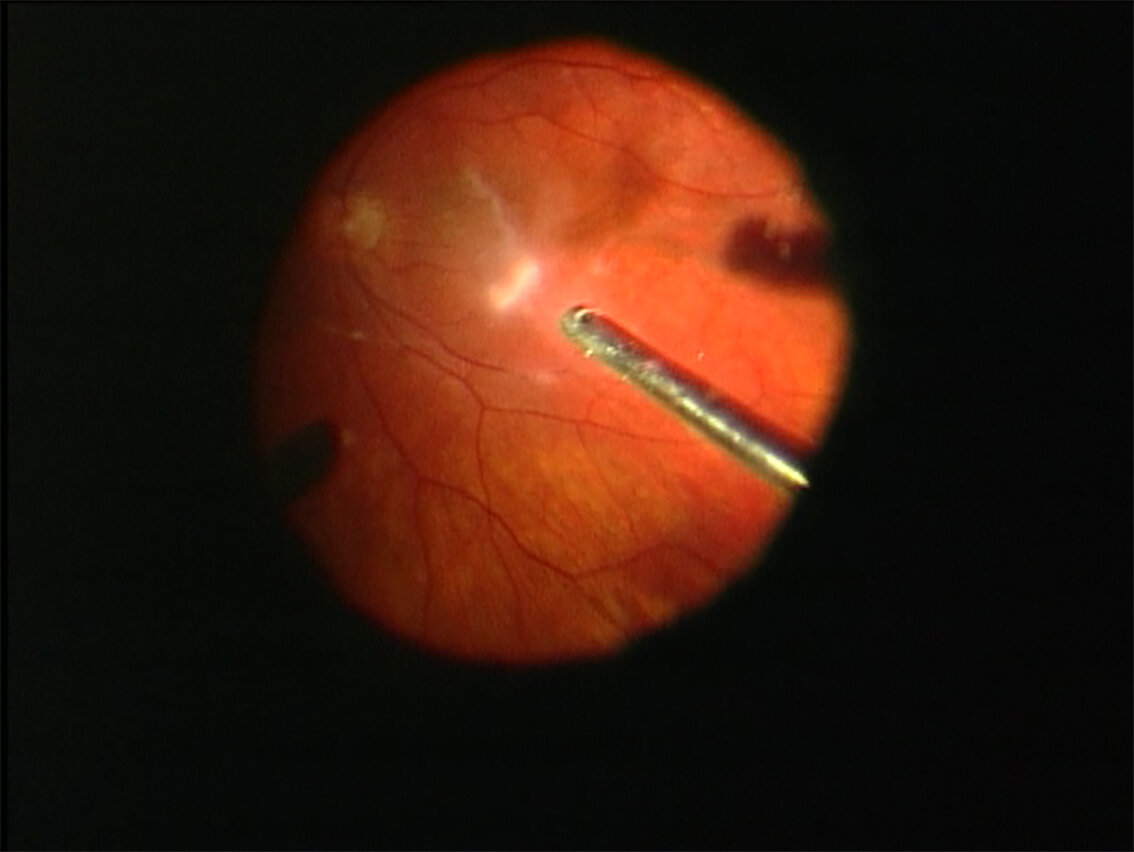Flashes & Floaters - Posterior Vitreous Detachment (or PVD)
This patient had troublesome symptoms from floaters that cast shadows onto the retina. This floaters are seen as white strands floating above the retina, just before I remove them.
What is Posterior Vitreous Detachment?
Posterior vitreous detachment (PVD) is a natural process within the eye that occurs at some point in everyone’s life. The vitreous is a ball of transparent gel that acts as a scaffold for the retina and the wall of the eye to grow around as we develop in the womb. It serves no purpose following birth and breaks down and weakens as we get older. The critical point in this weakening process is when the vitreous gel can no longer support itself. It collapses and pulls away from the retina. This is normal and is known as a PVD.
What are the symptoms of posterior vitreous detachment?
As the vitreous gradually breaks down, it creates debris that you see as floaters. When a PVD occurs, you may become aware of a sudden increase in floaters and flashing lights. Dependent on the shape of floaters, you may notice a cobweb, spider, lace curtain or flies floating in your field of vision. The flashing lights happen because the vitreous pulls the retina as it detaches from it. The retina can only send information about light to the brain and so you ‘see’ the tugging as light.
How do you treat posterior vitreous detachment?
In the majority of people, PVDs do not require any treatment. The floaters settle and become less troublesome with time and the vitreous pulls away from the retina completely without causing problems.
In a small number of people, the vitreous can tug too hard on the retina and cause a retinal tear. This is dangerous as it can lead to a retinal detachment and loss of sight. If you notice thousands of small floaters or bright flashing lights (like lightning), then this may have happened and you should have a dilated eye examination to rule this out.
What does the treatment involve?
In the small number of cases where the floaters remain troublesome and affects your quality of life, surgery (also known as a ‘floaterectomy’) can be performed to improve your symptoms.
Some specialists offer laser treatment of floaters. I do not offer this treatment.
Where will surgery take place?
I operate at Vision Care Clinic, which is based at the Nuffield Health Bristol Hospital.

